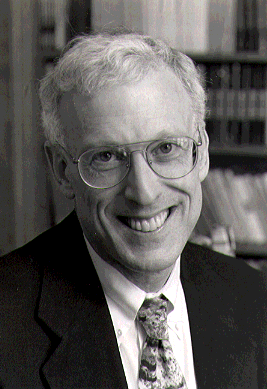Dr. Robert J. Sternberg
IBM Professor of Psychology and Education

Yale University
Box 208205
New Haven, CT 06520, USA
Phone: 203-432-4633
Fax: 203-432-8317
E-mail:
robert.sternberg@yale.edu
Dr. Robert J. SternbergIBM Professor of Psychology and Education |
|
 |
Department of Psychology Yale University Box 208205 New Haven, CT 06520, USA Phone: 203-432-4633 |
En: http://www.yale.edu/rjsternberg/
THINKING STYLES
My research on thinking styles has been
motivated primarily by my theory of mental self-government, according to which
the forms of government we have in the world are not arbitrary, but rather are
external reflections of ways in which we can organize our thinking. These forms
of government are reflected in styles of thinking, or preferred ways of using
our abilities (as contrasted with the abilities themselves). The theory posits
13 thinking styles: Functions of mental self-government: legislative--people who
likes to come up with their own ideas and to do things in their own preferred
ways; executive--people who prefer to be given guidelines in their work or to be
given a structure within which to work; judicial--people who like to judge
people and their products. Forms of mental self-government: monarchic--people
who are single-minded and who tend to focus on one thing at a time to the
exclusion of others; hierarchical--people who like to set priorities and decide
what to do when and for how long; oligarchic--people who like to do multiple
tasks, but who do not like to set priorities for doing them; anarchic--people
who eschew systems for doing tasks. Orientations of mental self-government:
internal--people who like to work on their own and to avoid contact with others;
external--people who like to work with others and to avoid being on their own.
Levels of mental self-government: local--people who like to deal with details
and fine points; global--people who like to deal with the big picture and with
general issues Ideologies of mental self-government; liberal--people who like to
do things in new ways; conservative--people who like to do things in traditional
ways In collaborative research with Elena Grigorenko (funded by the U.S. Office
of Educational Research and Improvement), we have found that teachers tend to
overestimate the extent to which their students match them in styles, and
moreover, tend to evaluate more favorably students who match the teachers'
profiles of styles; styles predict school performance beyond the prediction
provided by measures of abilities; teachers tend to match the stylistic
propensities of their schools, and students tend to match the stylistic
propensities of their teachers; older teachers tend to be more executive, local,
and conservative than younger ones.